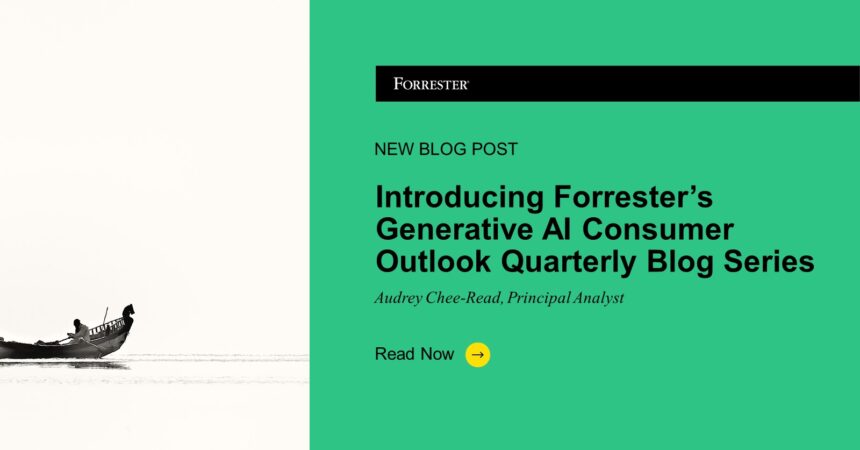Generative AI continues to be the topic du jour as businesses race to understand the technology for fear of being left behind. But what about consumers? Forrester is closely tracking this. I’ll be taking you through how consumers know, feel, and use generative AI every quarter. And no, this blog post was not written by ChatGPT.
Now that it’s been almost a year since ChatGPT made its big splash in late 2022, in short, consumers are in the throes of two tensions — cautious and optimistic. Specifically:
- It’s no longer about building awareness. Awareness of generative AI (shown with examples such as ChatGPT, DALL·E, and Bard by Google) has steadied over the past few months, with increasing usage of the tool: 31% have used genAI, and 55% have heard of it but have never used it, according to Forrester’s August 2023 Consumer Pulse Survey. Though genAI has only been used by nearly a third of US consumers, it is not indicative of future usage, as we find that 70% of US consumers who have heard of genAI see themselves using it at least once.
- Consumers fear declining intellect … Much fear has been expressed online, as it usually does when new technology that’s poorly understood comes to life. Consumers fear that the introduction of genAI, especially in schools, will contribute to declining intellect. According to Forrester’s August 2023 Consumer Pulse Survey, 50% of US online adults who have heard of genAI believe that it is a threat to society. A member of Forrester’s ConsumerVoices market research online community (MROC) tells us that “[genAI] does lead me to think, ‘Will generations to come lack the ability of creative thinking or reasoning as they start to become reliant on AI? What will this do for our cognitive ability?’”
- … and face an ethical dilemma. Consumers are skeptical about the output from genAI tools, lacking trust not only in the ethical nature of the output that has dominated news headlines but the reliability of the information. An MROC member said: “AI has severe limitations, aside from privacy and other issues. In trying some of the AI now available, I am not impressed. The accuracy is poor, and the information is less detailed, reliable, and accurate than the basic information that one finds by using a search engine.”
- Optimism abounds as consumers see a bright outlook for genAI. Though almost half of consumers believe that genAI is a threat to society, half also believe that it will make life easier in the long term. For consumers, the ability to create, learn, and explore through using genAI has unlocked a whole new world — and they’re feeling it, too. More consumers report feeling positive emotions such as joy and surprise, rather than anger or fear, after using a genAI tool. As yet another MROC member tells us: “Some of [genAI] is really fun to use; people have made collections of images that are hilarious and fairly creepy. Clearly, this technology cannot be blindly relied upon, but there are constant improvements. This kind of thing can end up being incredibly useful and helpful for people — though, at the same time, it’s a little scary how far technology has come and where it may go.”
Marketers: Want to understand what this means for your consumers and how to innovate for them? Feel free to schedule a guidance session with me to learn more.








